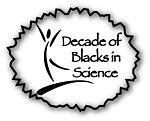Without a doubt, Henrietta Lacks was the most significant contributor to medical science and microbiology. She wasn't a scientist or a doctor. She was a mother and wife and grand-daughter of a tobacco farmer of Clover, Virginia. In February1951, she went to see doctors for what turned out to be cervical cancer at Johns Hopkins Hospital in Baltimore, Maryland. In the course of her treatment, doctors biopsied her cells to study them...and they never stopped growing. Though she died months later (October 1951), her cells lived on as a result she has cured polio, developed in-vitro fertilization technology, visited outer-space, and helped unlock the mystery of the HIV virus.
Rebecca Skloots top-selling nonfiction book about Henrietta Lacks and her immortal cell line, Hela cells, is coming out in paperback form. If you have yet to read it, then hesitate no more.
Confronting Science: African American Perceptions of Science and Medical Research
Tuesdays, February 8, 22, and March 8, 2011
African-Americans, as well as other minority and socio-economic marginalized groups, have had tumultuous relationships with the science research community. The period post American slavery was a time of racial definition and some scientists were set to demonstrate superiority of some groups over others. Combine this with secretive research missions, such as the Tuskegee Experiment which took place between 1932 and 1972, and it is very easy to understand why African-Americans are wary of experimental research. Compare these historical feelings of fear and distrust and it may also explain many inequities within the African-American community, including health disparities, participation in research studies, and pursing science-related careers. Ethics, Accessibility, and Faith were three of the major themes presented in the book The Immortal Life of Henrietta Lacks by Rebecca Skloot; and these themes are also major filters through which many African-Americans view science today. I will lead a three-part book discussion that confronts science and the research community via these filters and help the audience explore opportunities to see science and research in a wider and more inclusive way.
Part 1 - Ethics: Before any fruitful discussion about improving health care, access to resources, or increasing diversity in the sciences can occur, the painful accounts of science research must be fully addressed. The ethical issues presented in The Immortal Life provide an introduction to exploring the history of ethics in science research in the US, as well as thoroughly exploring people’s prejudices and perceptions of science, scientists, and the research community at-large.
Part 2 - Accessibility: The children and neighbors of Henrietta Lacks lacked access to quality long-term health care. This was not only due to their economic situations, it was exacerbated by their poor comprehension of science and medical terminology. Such barriers to understanding, as well as to care and career options, still exist for many today. I will lead a discussion on accessibility to science and health care – then and now – as well as share programs that aim to address these disparities.
Part 3 - Faith: Both Henrietta Lacks and her daughter, Deborah, were women of faith. Faith and religion have often been pitted as contrary to science. Moreover, faith plays a powerful role in health and healing within the African-American community. We will explore the role of faith for the subjects in the book, including the author who describes herself as agnostic, and how one’s personal faith is a filter to accepting or rejecting science and research.
Tuesdays, February 8, 22, and March 8, 2011
5:30 pm-7:30 pm
Schnucks Learning Center
Missouri History Museum
Participation is free, but registration is required; call (314) 361-9017.
If you live in the St. Louis Metro area, then please come on down.























2 comments:
we all know the advantages of suppressing experiments like the Tuskeegee Study. The other side of the coin is that it now becomes impossible to do certain kinds of valid and useful research. Not pretty, but true.
some factual evidence WAS learned during the Tuskeegee Study. If you were a syphilis patient, would you prefer that these facts be erased from your physician's knowledge-base?
I was wonderfully surprised once I started reading the book (and in fact, could not put it down). First, the book is incredibly well written and crafted - weaving together three (or more) threads: the life of Henrietta Lacks, the obsession of the author with the story of HeLa, and the science behind human cell line research
Post a Comment